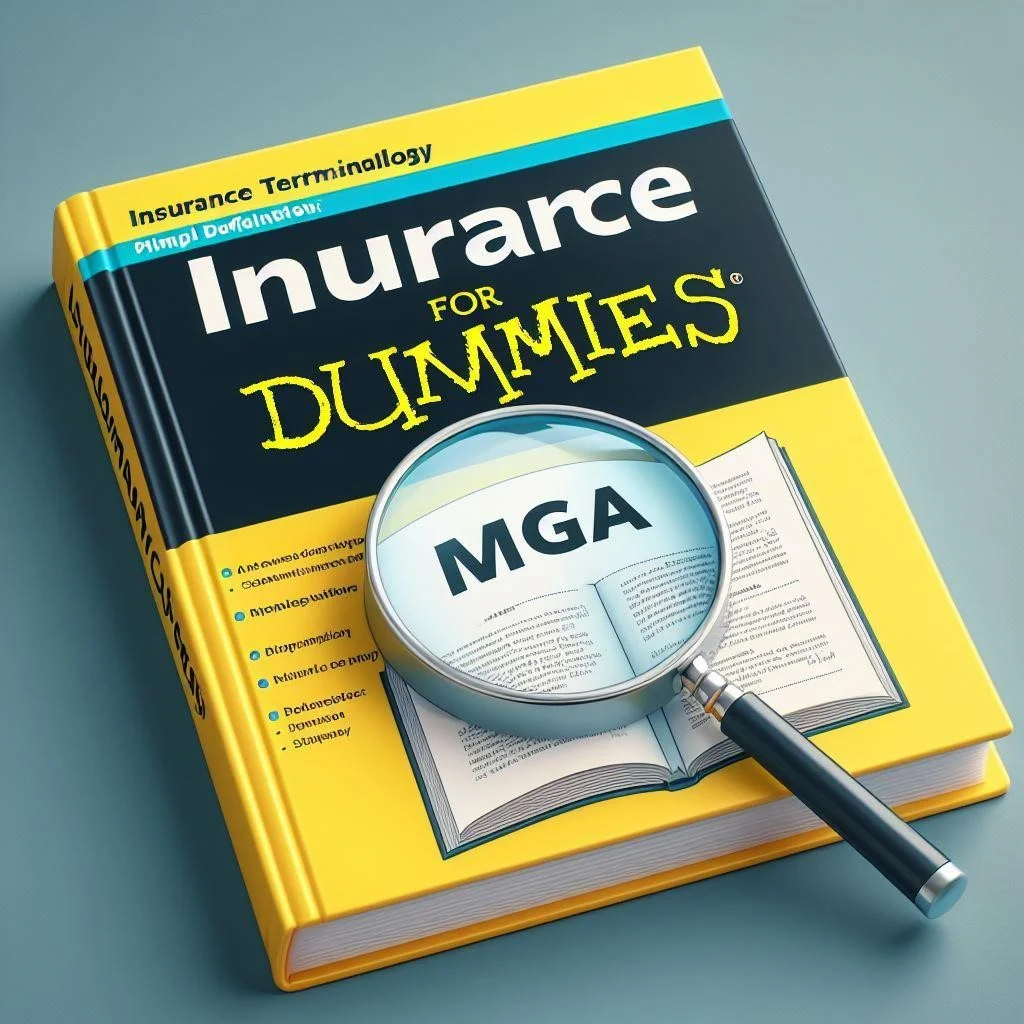The world of insurance involves many complex relationships between carriers, brokers, agents, and insureds. A lesser-known but vital participant in this web is the managing general agent (MGA). While frequently shrouded in mystery, MGAs perform invaluable services facilitating specialized insurance solutions.
This definitive guide will unpack exactly what MGAs are, their origins and evolution, how they operate, and the benefits they provide in modern insurance markets. Read on to understand why MGAs are essential partners for both insurers and policyholders.
Table of Contents
ToggleInsurance Basics: Key Players and Concepts
Before diving into MGAs, let’s review some fundamental insurance terminology and components that are crucial to contextualizing the functions of an MGA:
● Insurance Carriers design policies, assume risks and pay claims. Also known as insurers or underwriters.
● Policyholders/Insureds purchase policies and pay premiums to carriers. Individuals or businesses.
● Insurance Brokers act as intermediaries between policyholders and carriers. Help clients find coverage.
● Agents represent the interests of one or more insurance carriers. Sell policies on behalf of the carrier.
● Insurance Policies are contracts covering risks faced by policyholders. Outline terms of the coverage.
● Premiums are payments made by policyholders to carriers to maintain coverage.
● Commissions are payments made by carriers to agents or brokers for the sale of policies.
● Claims are filed by policyholders after covered losses to make an insurance payout.
This foundation underlies all insurance arrangements, including those involving MGAs.
Defining the Role of MGAs
A managing general agent (MGA) is an insurance agent or broker with specialized authority delegated by an insurance carrier. Typical MGA powers include:
● Binding policies and coverage on behalf of the carrier
● Pricing and rating policies
● Settling claims payments up to certain limits
● Recruiting and managing sub-agent networks
MGAs allow carriers to tap into expert underwriting and distribution resources while still maintaining control over final risk acceptance. They take on crucial responsibilities and functions for insurers.
The Emergence of MGAs
MGAs originated in the early 1970s as insurers sought to expand market reach using intermediaries while retaining underwriting oversight.
Over time, MGAs evolved into enterprises offering full policy lifecycle support. Insurers grant them extensive authority and autonomy to operate as mini-insurer partners within niche sectors.
The MGA sector continues to grow and now generates over $60 billion in annual premiums in North America alone.
Key MGA Functions and Services
Today’s MGAs handle a wide range of specialized services both for insurers and insured businesses:
● Underwriting analysis – Evaluate risks and determine pricing/eligibility for bespoke coverage.
● Policy administration – Fulfill certificate issuance, renewals, cancellations, and endorsements.
● Claims management – Facilitate policyholder claims, and adjust and settle losses.
● Compliance – Keep policies aligned with regulations and filing requirements.
● Sales and distribution – Develop policyholder networks through marketing and technology.
● Reinsurance access – Utilize reinsurance markets to place risks and limit carrier exposures.
These multi-faceted functions represent the complete insurance lifecycle, making MGAs a “one-stop shop” for carriers.
MGA Regulations
Insurance regulators closely oversee MGAs to ensure:
● Carriers grant proper authority to MGAs to transact coverage
● MGAs maintain adequate reinsurance protection for the risks they underwrite
● MGA agreements outline compensation rates and liability limits
● MGAs implement controls and meet licensing requirements
Proper MGA regulation preserves insurance company solvency and policyholder protections when risk is delegated.
MGA Business Models
Today’s MGAs deploy diverse business models tailored to their specialty niche:
● Target sectors – Focus on specific industries like transportation, professional liability, or cannabis.
● Small business – Offer streamlined solutions for Main Street companies.
● Digital platforms – Provide online policy sales and service portals.
● Data analytics – Incorporate data modeling into underwriting and pricing.
● Reinsurance networks – Leverage connections to secure captive reinsurance capacity.
This customization allows MGAs to deliver highly customized solutions.
The Benefits of Using an MGA
Partnering with MGAs provides advantages for both insurers and policyholders:
For Insurance Carriers:
● Access niche/emerging market expertise
● Expand underwriting bandwidth
● Implement new products efficiently
● Enhance distribution reach
● Limit risk through delegated authority
For Policyholders:
● Specialized coverages for unique assets and risks
● Potentially lower premiums through aggregation discounts
● Faster policy approvals using delegated authority
● Expert risk mitigation guidance
● Streamlined customer service
By combining targeted offerings with delegated authority, MGAs solve challenges for carriers and insureds.
Case Study: Pet Insurance MGA
One example of a successful MGA model is insuring pets. As pet ownership rises, MGAs have tapped into this need with dedicated pet health insurance products.
Key benefits of pet insurance MGAs include:
For Insurers:
● Access a fast-growing coverage market exceeding $1 billion
● Let MGA develop pet health risk expertise
● Limit financial hazards through reinsurance
For Pet Owners:
● Affordable policies not tied to employment
● Pre-existing condition coverage options
● Preventive care add-ons
● Mobile apps simplify claims
This win-win value proposition demonstrates the power of the MGA solution.
The Future of MGAs
The flexibility of the MGA model will continue fueling expansion. Several developments to watch include:
● New competitors entering the MGA sector from Silicon Valley and overseas.
● Consolidation as MGAs combines forces and resources.
● Direct distribution as MGAs leverage platforms to sell directly to consumers.
● New data strategies like Internet of Things sensors provide insights.
● Blockchain applications to increase MGA operational efficiency.
As the pace of change accelerates, MGAs will remain nimble and specialized.
Conclusion
MGAs fill an essential gap between the highly focused skills of underwriting specialists and the vast customer reach of carriers. Unlocking this symbiosis through delegated authority makes MGAs critical partners.
Their adaptability, innovation, and granular expertise ensure MGAs will continue reimagining insurance experiences for unique modern risks. Both established insurers and emerging insurtechs will benefit from leveraging MGAs’ capabilities.
Insurers, policyholders, and MGAs themselves all win through these collaborative partnerships. The future looks bright for the vital yet often overlooked players known as managing general agents.





